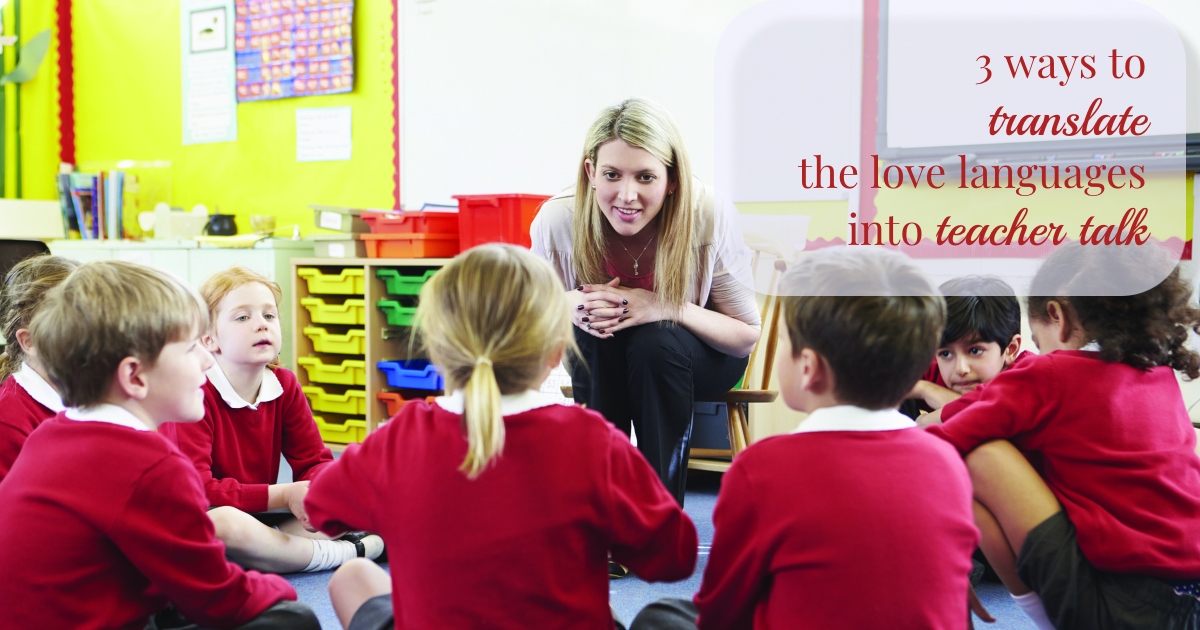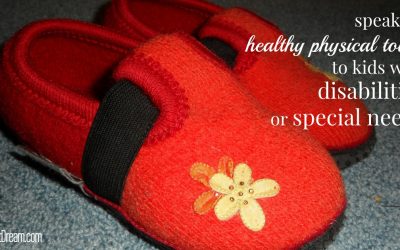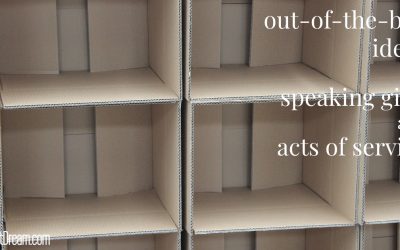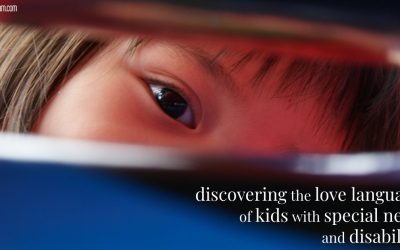Communicating Your Child’s Love Language to Educators

Communicating your child’s love language to educators is a simple way to cultivate a good teaching and learning relationship between them. Many of the caregiving parents interviewed for Sharing Love Abundantly in Special Needs Families: The 5 Love Languages for Parents Raising Children with Disabilities explained how they do it. In chapter 9 of Sharing Love Abundantly in Special Needs Families several of them stressed the importance of “translating” the love languages into educational jargon. Here are a few examples.
- Instead of saying “My child responds best to words of affirmation,” say “My child responds well to positive reinforcement.”
- Instead of saying “My child’s love language is physical touch,” say “My child loves getting high fives when he does something well.”
- Instead of saying “My child’s love language is gifts,” say “My child responds well to applied behavioral analysis (ABA).”
More ideas about communicating your child’s love language to educators, such as how to make them part of a child’s IEP or 504 plan, can be found in chapter 9 of Sharing Love Abundantly in Special Needs Families. Research shows that kids who feel loved and welcome at school are better able to learn. Why not use the love languages to make their school days happier and more productive?
Links to other articles in this series:
The Love Languages and Special Needs Families: A Good Combination
Basic Love Language Concepts to Ease Stress and Increase Joy in Caregiving Families
Threats to Caregiving Marriages and How To Fight Them
Love Is a Child’s First Language
Determining the Love Language of a Child with Special Needs or a Disability
Ways to Speak Words of Affirmation and Quality Time to Kids with Special Needs
Ways To Speak Gifts and Acts of Service to Kids with Special Needs
Speaking Healthy Physical Touch to Kids with Special Needs
Using the Love Languages with Siblings of Kids with Special Needs and Disabilities
Extended Family Members Can Use the Love Languages to Encourage Caregiving Parents
Communicating Your Child’s Love Language to Medical Professionals
Do you like what you see at DifferentDream.com? You can receive more great content by subscribing to the monthly Different Dream newsletter and signing up for the daily RSS feed delivered to your email.
By Jolene
Jolene Philo is the author of the Different Dream series for parents of kids with special needs. She speaks at parenting and special needs conferences around the country. She’s also the creator and host of the Different Dream website. Sharing Love Abundantly With Special Needs Families: The 5 Love Languages® for Parents Raising Children with Disabilities, which she co-authored with Dr. Gary Chapman, was released in August of 2019 and is available at local bookstores, their bookstore website, and at Amazon.
Subscribe for Updates from Jolene
Related Posts
Speaking Healthy Physical Touch to Kids with Special Needs
Speaking healthy physical touch to kids with special needs and disabilities can be done in ways surprising to parents and other caregivers.
Ways To Speak Gifts and Acts of Service to Kids with Special Needs
Ways to speak gifts and acts of service to kids with special needs and disabilities are plentiful. This post offers some creative ones!
Determining the Love Language of a Child with Special Needs or a Disability
Determining the love language of a child with special needs or a disability is easier than you may think with the help of these 5 strategies.






0 Comments